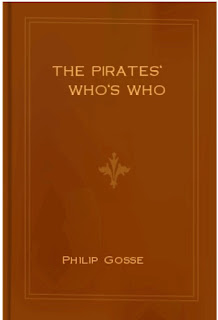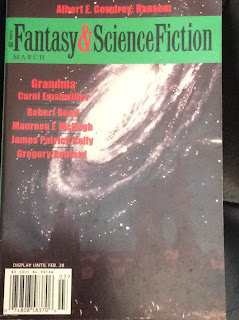This book, published originally in 1988, and reprinted in 2014, was an impulse buy at a discount store. (Note the blurred price tag in the photo.) I'm not aware of any updates to the book for the new edition. Oddly, I never checked when it was published until I was typing this entry. This might explain why my knowledge of history was so rusty, considering that there isn't anything from the past 30 years or so, which would be most of my adult life when I might've been paying attention to such things.
I'll come right out and say this book was a bit of a disappointment, but it was an impulse buy. I shouldn't flipped through the pages a little bit before making the purchase.
The book consists of some 500 multiple-choice questions about Ireland, divided into categories: Irish History, Irish-American History, Beliefs and Legends, Entertainment, Words, Food, etc. The questions were a little too picky, and sometimes several focused on the same event (in some case, inadvertently giving away answers). I'll admit that I don't know the names and contributions of every famous Irish man and woman in each of two countries (and a few around the world).
What I found missing was any sense of cohesion tying the entire book together. Maybe an introduction into each chapter. Perhaps a little more information woven into the answer keys that followed. Something to make reading about random events, people and facts a little bit more interesting.
I'd almost put the book aside before I'd gotten to the chapters on Words and Food. I did pretty well in those, having heard quite a few of those terms over the years, from my family, old movies and even music. As a bonus, the Answer Key to the Food chapter actually included some recipes. I'll likely photograph the bunch of them and try one or two of them out sometime. (Likely not the soda bread -- my wife already makes a good soda bread. No reason to try something new.)
So it was interesting in bits, but overall, not what I was looking for. Sadly, I think I have something else in the closet that's similar. I won't mind if it refers to things I might have heard of or can reason out. But this was just guess, guess, move on, etc.
Final notes: I had a Post-It for a bookmark (two, actually: one for the answers). I scribbled down a few notes to look up, which so far, I haven't. So in case I lose the note, here are the entries:
- Lough Derg ("Lou Derg")
- Hy Brasil
- Femoril
- "keener"
- Giants Atrium (cooling lava)
The parenthetical "Lou Derg" was (I think) me thinking that that would be a good name from a character in a story, having a little inside joke in his name.
Giants Atrium is a place formed by cooling lava, and I wanted to research it because it has the natural feel of a fantasy story location. (Maybe for Lou Derg?)
Final verdict: don't waste your time, even if it's only an hour.






